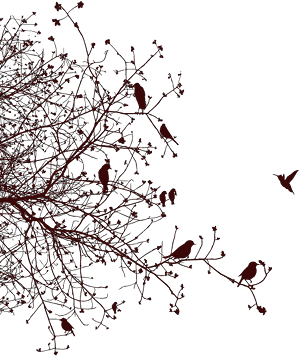Vegan titles poised to overtake vegetarian?
Posted on July 12, 2011
In the early 1990s, my local Barnes and Noble bookstore carried a few vegetarian cookbooks, but not one was vegan. Things are different today; a delightful variety of vegan cookbooks occupy store shelves, but they are usually still outnumbered by vegetarian cookbooks. Vegetarians outnumber vegans, and so this is to be expected, but what exactly is the ratio between vegan and vegetarian titles?
To answer the question, we first need simple rules to place books in either the vegan or the vegetarian category without having to flip through these books. My data comes from Amazon.com, which I believe offers the most comprehensive searchable resource on books today. I decided to place in the vegan category all books that use the word vegan in the title or subtitle. I decided to place in the vegetarian category all books that use the word vegetarian but not the word vegan in the title or subtitle. A small fraction of books (less than 5% in recent years) that use the word vegetarian also use the word vegan in the title/subtitle. My reasoning for placing these books in the vegan category is that they are often vegan-centric or sometimes entirely vegan (e.g., Vegetarian Times Everything Vegan). The exceptions are more than made up by the fact that many books that use the word vegetarian and not vegan in the title/subtitle are actually entirely vegan (e.g., Great Vegetarian Cooking by Lorna Sass, among my favorite vegan cookbooks).
The following plot depicts the cumulative number of printed books in English published or to be published in 2011 that fall in one of the vegan and vegetarian categories described above. I decided that merely having an ISBN number did not make something a book; I only counted books that meet the commonly held notion of a book. For example, I excluded 4-page laminated cards, research reports sold at unseemly prices of nearly $800 each, and magazines sold as bound volumes. And, I added a curmudgeonly rule: anything with less than 100 pages is a booklet, not a book (with the only exception granted to children's books). To all the authors who thought they wrote a book, and I insulted their creation by calling it a booklet, sorry!
The graph is semi-interactive; you can hover your mouse over any point and read off the data. The plotted numbers are cumulative — for example, the number reported for March is the number of book titles published in 2011 until and including the month of March. Obviously, not all books to be published in 2011 are announced yet. But, of those that are at the time this post was written (July 12, 2011), we have 76 vegan titles but only 73 vegetarian titles. So, apparently, vegan titles may outnumber vegetarian titles in 2011! This is not the case if you count the booklets too because, for whatever reason, 2011 was a boom year for vegetarian booklets (with as many as 20 of them with 30 pages or fewer!).
The obvious next question to ask is if 2011 is the first year in which one finds more vegan book titles being published than vegetarian titles. There was no booklet boom in the earlier years; so, for the following graph, I did not filter books by page numbers but I used all the other criteria used in the previous graph. The following graph depicts the number of printed books in English published each year since 1970 under the two categories.
So yes, vegetarian book titles have always outnumbered vegan book titles, and 2011 may be the first year in which vegan titles will surge ahead of vegetarian titles. We will know for sure in January 2012. In the meantime, the two graphs above generate some questions that deserve answers:
- The surge in vegan books beginning in 2008 is actually unremarkable because there was a similar surge in all printed books in 2008 (maybe, because self-publishing really took off during this time?). Vegetarian books fare even worse except for a spike in 2010 which looks unlikely to be sustained in 2011. What is remarkable is that veganism is eating into vegetarianism, and the ratio of vegan to vegetarian books is rising. What was it that started a surge in vegan books in 2008 that somehow did not create the same surge in vegetarian books?
- There was a steady rise in vegetarian books from 1989 to 1996 and then a somewhat unsteady decade-long decline from 1996 to 2006. I can understand the rise, but the decline puzzles me. If you consider that the number of vegetarian books reduced by half during this same period in which the total of all printed books published per year actually doubled, the decline is especially puzzling and also troubling. Why did the number of vegetarian books decline through an entire decade? What went wrong?
I don't have answers to these questions. Do you?
py3.9.4 (default, Apr 5 2021, 09:56:39) [GCC 7.5.0]Django(3, 2, 1, 'final', 0)






Comments
scio
July 12, 2011, 5:21 p.m.
Nice blog!
scio
July 12, 2011, 5:28 p.m.
Good question. Are there any statistics on cookbooks in general for the same time period? The decline in vegetarian titled books might track some more general cookbook factor that the vegan books where resistant too (maybe because still such a small niche of the veg*an book market).
Harish
July 12, 2011, 5:54 p.m.
Thanks, scio! I have not been able to find stats on cookbooks. Amazon.com has a category for "Cooking, food and wine" but its categorization algorithm is very poor. That is why I did not use it in the post. But, I did look at this category of books and they grew by 30% between 1996 and 2006 while vegetarian books fell by 50% during that period. I do not have a good explanation.
Kevin
July 12, 2011, 9:16 p.m.
Great work. I'm a statistics kind of guy so I love reading stuff like this.
Valerie
July 12, 2011, 10:40 p.m.
Great blog...our local book store (McNally Robinson) here in Wpg. MB, Canada carries a good selection of vegan/vege. cookbooks..but mainly I purchase mine through Amazon.
Colinski
July 12, 2011, 11:14 p.m.
Nice blog! Why no RSS feed?
ChefDave
July 13, 2011, 9:44 a.m.
Nice blog, the information is uplifting for some of us located in carnivore country. Nice to know we are not alone and the community is growing.
Rhea
July 13, 2011, 11:37 a.m.
Great blog! Looking forward to following it.
Che Green
Aug. 7, 2011, 5:13 p.m.
Great post and blog, Harish.
I know we may be mixing apples and oranges, but if the total number of books doubled during the period, that's much greater than the category growth of 30%. So that might explain some of it. Also, the growth was very steep in the previous seven years, suggesting possible saturation of the vegetarian cookbook market. Lastly, there might have been some replace of vegetarian cookbooks with vegan-titled cookbooks. Just thoughts... no solid answers.
Looking forward to future posts.
Harish
Aug. 9, 2011, 4:14 p.m.
Che, I think each of your three explanations is a very good partial answer, and together they may be a complete answer. Your third explanation is basically saying that, probably because the number of vegans has reached a certain critical mass, cookbook authors who would otherwise write a vegetarian book now choose to make it vegan to expand their market. If this is true, it is very interesting (in a socio-economic sense) how a small minority (vegans) can change the market forces in a population (vegetarians) that is three to five times larger.
peace
Aug. 24, 2011, 11:41 a.m.
"somewhat unsteady decade-long decline from 1996 to 2006. I can understand the rise but the decline puzzles me. Why did the number of vegetarian books decline through an entire decade? What went wrong?"
The Atkins diet. This was the era in which the low-carb diet fad was in its heyday. Bread and veggies were bad, meat and butter were in--big time.
Harish
Aug. 25, 2011, 8:02 a.m.
Hi peace! I like your Atkins diet explanation for the decline that started in 1996. I had not thought of it. I am going to work on figuring out a way to test this hypothesis or the impact of Atkins on the veg movement.
GorillaFit
May 10, 2012, 11 a.m.
A heads up to all veg it seems paleo is on a rampage to push veganism aside with their atkins like ideology and caveman tactics. If vegans don't get educated in what paleo is there is a good chance they will be cuaght blind sided. A lot of the grassfed happy meat movement is connecting to paleo and the movement is growing. NO killing is humane no matter how well you treat it.
GorillaFit
May 10, 2012, 11:03 a.m.
... meant to say in the last sentence no matter how well you treat them. (Not it) sorry for that.
JD Mumma
Jan. 31, 2013, 6:18 a.m.
Thanks for the article and infographs!
Will you be updating this information?
Harish
Jan. 31, 2013, 10:22 a.m.
JD, Yes, I will be updating it in another blog post soon.
Berenice
Sept. 13, 2013, 11:21 a.m.
Your blog is very interesting! I am a vegan, I have learn about compassion, but it's great to see it revealed in numbers. Thank YOU.
Additional comments via Facebook